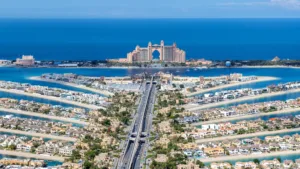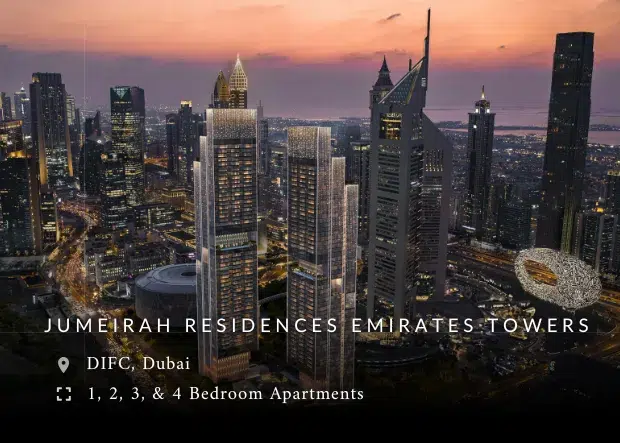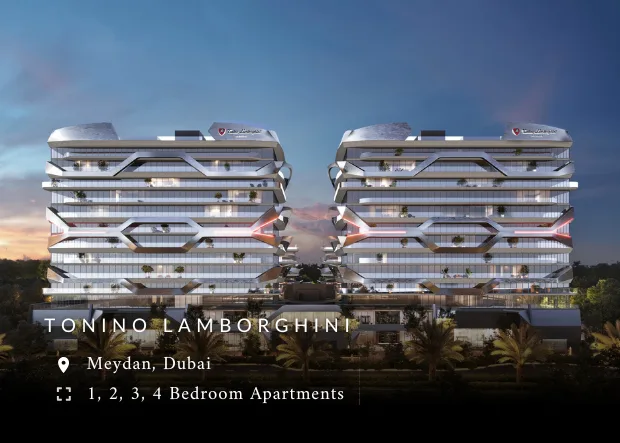Introduction
Dubai’s economic landscape stands as a remarkable example of resilience, showcasing its diverse strategies for growth and stability. Nestled at the crossroads of global trade routes, the city has emerged as a vital hub for commerce, tourism, and finance. This strategic positioning not only fuels its economy but also enables it to weather financial storms that affect regions worldwide. Central to this enduring strength is the proactive approach taken by the emirate’s leadership, which prioritizes investments in sectors beyond oil, including technology, healthcare, and aviation.
Dubai’s commitment to innovation and infrastructure enhancement not only attracts international businesses but also increases employment opportunities for its residents. The emirate’s unique geographical advantages further promote its role as a critical gateway connecting East and West, supporting a vibrant economic environment that benefits local and global stakeholders alike.
Furthermore, Dubai has cultivated an investor-friendly regulatory framework that encourages foreign investment, providing a transparent and secure climate for businesses to thrive. These attributes, combined with adaptive economic policies, position Dubai as a resilient economy capable of navigating global challenges while continuing to attract investment and drive growth. As this article delves deeper into the structural strengths underpinning Dubai’s economy, readers will gain valuable insights into its enduring appeal and future prospects.
Understanding Dubai’s Economic Resilience
Dubai’s economic resilience is a testament to its diverse and robust structural foundations. The emirate has strategically positioned itself as a global hub for trade, tourism, and finance, significantly contributing to its stability during periods of global financial downturns. Integral to this resilience is the government’s commitment to enhancing infrastructure and investing in various sectors beyond oil, such as aviation, technology, and healthcare.
This diversification fosters an environment that attracts international businesses, bolstering local employment and economic activity. Additionally, Dubai’s strategic geographic location serves as a gateway between East and West, facilitating trade and commerce, which further enhances its economic robustness. The emirate has developed a dynamic public-private partnership model, empowering businesses and promoting innovation, ultimately driving economic growth.
Moreover, Dubai’s regulatory framework supports a transparent and investor-friendly climate, instilling confidence among foreign investors. This confidence is crucial, especially during economic uncertainties. The ability to adapt to changing global conditions, coupled with proactive economic policies, ensures that Dubai doesn’t just survive but thrives in the face of challenges. Understanding these structural strengths helps explain Dubai’s position as a desirable location for investment and a model of economic resilience in an ever-changing world. As such, comprehending these elements provides valuable insights into the stability of its economy and the prospects for growth, making it a focal point for both local and international stakeholders.
Strategic Government Policies Supporting Real Estate
Dubai’s real estate sector benefits significantly from a range of strategic government policies designed to promote stability and growth. The government has established regulatory frameworks that enhance investment safety and streamline processes for property transactions. Initiatives such as the Dubai Land Department and the Real Estate Regulatory Agency provide oversight and transparency, fostering a secure environment for both domestic and international investors.
Additionally, the introduction of long-term visa options for expatriates and investors has incentivized property purchases, enhancing the appeal of Dubai as a global real estate hub. Policy measures, such as the 100% Foreign Ownership Law, have further bolstered investor confidence by allowing foreign nationals to fully own real estate in designated areas.
By creating freehold properties and designated investment zones, the government has attracted numerous multinational corporations and affluent individuals, essential for a robust real estate landscape. Furthermore, the establishment of economic clusters and free trade zones underscores Dubai’s commitment to attracting foreign investment, thereby reinforcing the property market’s stability.
Overall, the combination of these proactive government strategies contributes to a thriving real estate environment, ensuring that Dubai remains a lucrative destination for property investment. As policies evolve to adapt to global economic challenges, the sector is poised for sustained growth, underpinned by the government’s unwavering support and strategic foresight.
Consistent Inflow of Foreign Investment
Dubai’s real estate market has become a beacon for global investors, primarily due to its reputation as a resilient and lucrative investment destination. The city’s strategic location, coupled with its robust infrastructure, appeals to investors seeking opportunities that can withstand economic downturns. The emirate’s diversified economy, characterized by sectors like tourism, trade, and finance, has fostered a stable environment that continuously attracts foreign capital.
Moreover, Dubai’s favorable regulatory environment enhances its appeal to international investors. The introduction of various initiatives, such as long-term visas for expatriates and the establishment of freehold zones, provides reassurance to foreign entities looking to invest in real estate. Investment-friendly policies promote investor confidence, further solidifying Dubai as a hub for recession-proof investment opportunities.
Additionally, the high rental yields and lack of property taxes contribute to the city’s allure. Investors consistently seek ways to capitalize on these returns, making the real estate sector an attractive choice amid global economic uncertainty. With ongoing developments in urban infrastructure and a commitment to maintaining a dynamic business ecosystem, Dubai continues to be a top destination for foreign investment. This consistent inflow of capital not only bolsters the real estate sector but also enhances Dubai’s position as a stable and prosperous city in the larger global economy, ensuring its attractiveness for years to come.
High Rental Yields and Tax-Free Returns
Dubai’s real estate market offers significant financial benefits that appeal to both local and international investors. One of the standout features is the high rental yields associated with property ownership in this vibrant city. Typically, property owners in Dubai can expect rental yields ranging from 6% to 10%, which is substantially higher than in many other global markets. This attractive return on investment makes Dubai an appealing option for those seeking stable income streams.
Moreover, one of the most distinctive advantages of investing in Dubai real estate is the absence of property taxes. Unlike many countries, where property owners face substantial tax burdens, Dubai’s tax-free framework allows investors to retain more of their rental income. This unique condition not only enhances overall profitability but also encourages a strong influx of foreign capital into the property sector.
As a hub for expatriates and a growing population, Dubai’s demand for rental properties remains consistently high. Factors such as a robust job market, a diverse economy, and an appealing lifestyle contribute to this sustained demand. Therefore, prospective investors should consider the combination of high rental yields and tax-free returns as essential elements when evaluating Dubai’s real estate potential. Overall, these financial advantages establish Dubai as a sought-after destination for prudent real estate investment, particularly for those aiming to secure their financial future.
Real Estate Demand Driven by Global Events
The demand for real estate in Dubai is significantly influenced by global events and geopolitical shifts. As uncertainties arise in various regions, investors often flock to stable markets, making Dubai a preferred destination for safe-haven investments. The city’s strategic location, robust infrastructure, and progressive regulatory framework offer a conducive environment for real estate growth.
During periods of geopolitical tension or economic instability, many investors seek to secure their assets in markets perceived as resilient. Dubai’s diverse economy, bolstered by sectors such as tourism, finance, and trade, further enhances its appeal. The city’s proactive government policies, including various initiatives aimed at attracting foreign investments, ensure a continuous influx of capital into the property market.
Moreover, global events such as natural disasters, political unrest, or shifts in trade dynamics can prompt investors to diversify their portfolios by incorporating international properties. The real estate sector in Dubai stands out due to its ability to provide robust returns, driven by an increasing demand for residential and commercial properties.
With the global landscape continuously evolving, Dubai’s reputation as a reliable investment hub is reinforced. This adaptability not only caters to local demand but also attracts international buyers searching for stability amid uncertainty, thereby driving the overall demand for real estate in this vibrant metropolis. Understanding these dynamics is crucial for investors looking to navigate the complexities of the global market.
Long-Term Viability of Dubai Recession Proof Investment
The long-term viability of real estate investments in Dubai is underpinned by several market trends and comprehensive urban development plans. As a global city, Dubai’s strategic location and world-class infrastructure facilitate sustained economic growth, attracting investors seeking stable and secure opportunities. The government’s commitment to continuous urban development, including mega-projects such as Expo 2020 and Dubai Creek Harbour, positions the city as a focal point for new businesses and residents alike.
Additionally, trends in population growth and diversification of the economy contribute to the demand for residential and commercial properties. As more expatriates and multinational corporations establish their presence in Dubai, the need for quality real estate becomes evident. The Emirate’s focus on enhancing its tourism sector and hosting international events further solidifies its appeal as a prime investment destination.
Moreover, Dubai’s proactive approach in addressing global economic challenges demonstrates its resilience. Regulatory frameworks designed to protect investors, including property ownership laws favorable to overseas buyers, enhance the attractiveness of the Dubai real estate market. These factors collectively underscore the long-term potential of Dubai as a recession-proof investment haven.
Overall, the interplay of urban development, a robust economy, and consistent demand positions Dubai’s real estate sector for sustainable growth, making it a wise investment choice in any economic climate.
Conclusion
In summary, Dubai’s economic resilience stands as a remarkable model for diversification and adaptability in a rapidly evolving global landscape. The strategic initiatives undertaken by the government, including investments in sectors such as technology, aviation, and healthcare, have not only fortified its economic foundation but also attracted international businesses. By fostering an investor-friendly regulatory environment and promoting innovative public-private partnerships, Dubai has effectively positioned itself as a thriving global hub for trade and finance.
The emirate’s geographic advantage, coupled with its commitment to infrastructure development, allows for seamless connectivity between East and West, further enhancing its attractiveness to global investors. Overall, understanding the multifaceted aspects of Dubai’s economy serves a dual purpose—offering insights into the emirate’s current stability while highlighting its promising growth trajectory.
As the world faces ongoing economic challenges, Dubai’s proactive measures and resilient strategies not only provide a blueprint for success but also exemplify how nations can navigate uncertainties. For investors and businesses alike, recognizing the structural strengths and opportunities within Dubai’s economy is vital for making informed decisions. Ultimately, the lessons drawn from Dubai’s economic framework are invaluable for stakeholders aiming to thrive in a competitive and ever-changing market.





